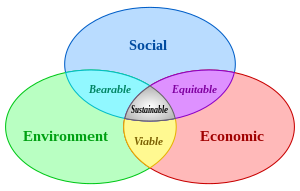travel: at this point, i've pretty much got visas, vaccines, and tickets under control. i'll be leaving falmouth on the 18th and traveling to kathmandu by way of new jersey (family time), new york city, brussels, and dehli. tragically the only place i'll be spending more than 8 hours is jersey (no offense, jerz). my actual trip clocks in at just over 30 hours, which is more or less par for the course; it's just really really not easy to get to kathmandu, it turns out. (however, it appears to be CAKE compared to getting to sikkim, where i will also be spending some time this year. i haven't done full due diligence on that yet, but, lacking an airport AND train tracks, it looks like i'll have to take a bus from west bengal...which should be interesting. more on that, below).
accommodations: upon arrival, i'll start apartment hunting, with lots of help promised from the director, brian, and the rest of the mountain institute (hereafter, TMI) staff. (side note: brian and the staff seem like the kindest, most helpful group of people. the communications so far make me think that i'm heading into a really close, supportive work environment...no nepalese devil wears prada action, kind of a relief in any new work situation). anyway, from what i can tell, kathmandu is composed of LOTS of little neighborhoods. my office is in baluwatar, across from the PM's palace, so i'll probably look for a place within walking distance, either in lazimpat or bhat bhateni. both are pretty ex-pat heavy neighborhoods; lazimpat is known for its proliferation of embassies, and bhat bhateni (among other things, presumably) for its supermarket. this supermarket is apparently one of the major reasons why you can really find anything you need in kathmandu (no bringing a year's worth of tampons), except for things like contact lenses, and, oddly enough, ziploc bags. go figure. i'm hoping to find a roommate, for the sake of having someone to help me get off the ground, socially, if nothing else. regardless, i've been told this process isn't exceedingly difficult, and i've set aside a couple of days before i start work to recover, acclimate and start looking for an apartment.
language: as i think i've mentioned, the lingua franca of nepal is nepali, although given to the incredible ethno-linguisitic diversity of the country, it's only about 50% of the population's mother tongue. the script is devanagari (the same as hindi), which, due to the fact that the only guide i could find for a while required its users to become literate as they become conversant, i've learned to read and write haltingly. that's less impressive/useful than it sounds, given that a) i don't have any idea, for the most part, what i'm reading or writing and b) only about 50% of the country is literate anyway. ah well. in any case, i'm getting more and more vocab and grammar now, and brian has said he'll help set me up with some language lessons, so hopefully those skills will shape up quickly. unfortunately, i'm leaving without most of the phrase that my mother has decided will be the most important for me to know: "excuse me (elder) brother! subhya deen [good afternoon]. could you tell me where i might acquire treatment for this rabid monkey bite? dhanyabad [thank you]"
work: who is the dirtiest hippie in all the land, and super excited about it? this guy. for starts, some people have asked me what sustainable development actually means. my understanding (from a class at the forestry school and some strategic googling) is that sustainable development aims to balance the goals of preserving environmental resources with promoting the economic (and social) well-being of communities who are locally dependent on those resources (see handy wikipedia venn diagram below? WOOHOO VISUAL AIDS). TMI works on several projects in the region, but it seems like the one i'll be working on most is sort of a suite of projects operating in a geographically distinct, transboundary region of exceptional biodiversity in eastern nepal and sikkim, india. partly as a result of this multi-country mission, and partly for visa reasons, it looks like i'll be spending a few months in the sikkim office during my year at TMI. one project, more in sikkim than nepal, is about trying alternative livestock management techniques that allow for a reduction of herd size, and thus pastureland, which is otherwise an important habitat for the threatened red panda species (cute little devils, but not what you'd imagine, i discovered). the project also develops livelihood opportunities for the same herders as caretakers and shareholders in sustainable ecotourism projects in the region. the part of the project more in eastern nepal than sikkim, focuses on getting farmers to cultivate medicinal and aromatic plants (MAPs) instead of harvesting the quickly disappearing wild stocks. the next step in this process is forming a farmer's cooperative, to give these farmers greater collective bargaining power in the market. to be totally honest, i'm not sure what a lot of this entails, but i'm doing what i normally do in such circumstances: gathering a bibliography. nerd alert.

anyway, i think that's more than enough for now, but i will post again when i get to kathmandu and get some internet access.
Vaya con Dios, as they say in Nepal.
ReplyDeleteI feel like somehow, out of nowhere, Brian Hauss would know some Nepali. Just a thought.
ReplyDelete